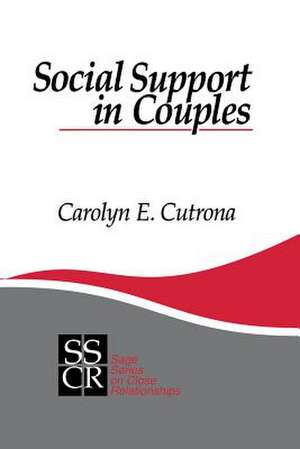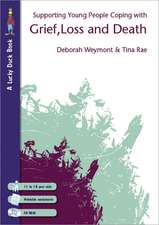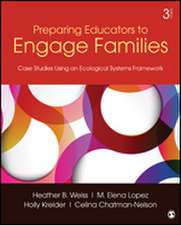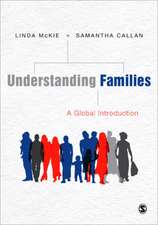Social Support in Couples: Marriage as a Resource in Times of Stress: SAGE Series on Close Relationships, cartea 13
Autor Carolyn E. Cutronaen Limba Engleză Paperback – 29 mai 1996
Preț: 716.73 lei
Preț vechi: 874.06 lei
-18% Nou
Puncte Express: 1075
Preț estimativ în valută:
137.16€ • 142.39$ • 114.37£
137.16€ • 142.39$ • 114.37£
Carte tipărită la comandă
Livrare economică 24 martie-07 aprilie
Preluare comenzi: 021 569.72.76
Specificații
ISBN-13: 9780803948846
ISBN-10: 0803948840
Pagini: 168
Dimensiuni: 152 x 229 x 11 mm
Greutate: 0.29 kg
Ediția:New.
Editura: SAGE Publications
Colecția Sage Publications, Inc
Seria SAGE Series on Close Relationships
Locul publicării:Thousand Oaks, United States
ISBN-10: 0803948840
Pagini: 168
Dimensiuni: 152 x 229 x 11 mm
Greutate: 0.29 kg
Ediția:New.
Editura: SAGE Publications
Colecția Sage Publications, Inc
Seria SAGE Series on Close Relationships
Locul publicării:Thousand Oaks, United States
Cuprins
What Is Social Support, and What Makes You Think You Have It?
Gender Related Differences in Social Support and Coping
Giving and Taking Support
A Complicated Process
The Interplay between Conflict and Social Support
Do Positive Behaviors Really Matter?
In Sickness and in Health
When One Partner Has a Serious Illness
Social Support Therapy with Couples
Future Research Directions
Gender Related Differences in Social Support and Coping
Giving and Taking Support
A Complicated Process
The Interplay between Conflict and Social Support
Do Positive Behaviors Really Matter?
In Sickness and in Health
When One Partner Has a Serious Illness
Social Support Therapy with Couples
Future Research Directions
Descriere
Social support is vital in long-term relationships of couples. This volume provides a rich understanding of this support system.
Following an overview of definitions and conceptualizations of social support, Cutrona explores everyday acts that communicate caring and concern in dyads, discussing such issues as: gender-related differences; the interplay between supportive and destructive interactions; and high stress levels experienced during chronic illness. She also suggests specific techniques for therapists to use when assisting couples who want to increase the quality and frequency of mutual support.






















